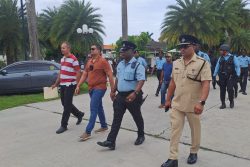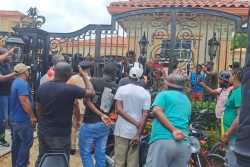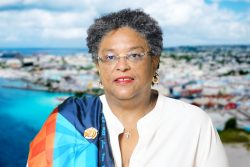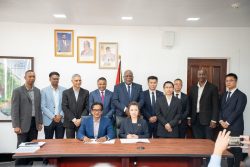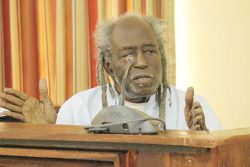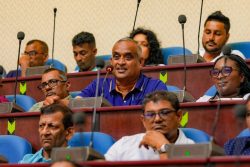Dear Editor,
After Burnham’s departure from the PPP, individuals such as Brindley Benn, C.V Nunes, Jessie Burnham (Forbes sister) Fenton Ramsahoye, Rudy Luck, Martin Carter, Francis DeSouza – to name a few – constituted ranked members of the party. Today, the multi-ethnicities of prominent PPP/C’s representatives are quite evident, well known, and regularly visible. Afro and Indo Guyanese need to recognize, and acknowledge their commonalities and interdependence rather than focusing on, and emphasizing, their ethnic differences. They should be reminded what Dr. Walter Rodney eloquently stated in his book, A History of the Guyanese Working People, that the British Colonizers utilized and capitalized on ethnic differences to make Africans and Indians suspicious of each other and kept them divided. This treacherous act by colonizers served to discourage Africans and Indians from forming alliances detrimental to colonial control and domination.
Following from the above, Guyanese should also be constantly reminded of politicians and quasi-politicians who embraced the divisive system created by colonials to keep Afro and Indo Guyanese disunited, suspicious and antagonist toward each other. As the cultural historian Russel Jacoby cautions: “Social amnesia is society’s repression of remembrance-society’s own past.” Hence, failing to remember the history of ethnic divisiveness, and how opposition politicians regularly reconstruct and reshape cultural differences to promote hate and disrupt Guyana’s stability is insulting, and tantamount to living with social amnesia. To avoid the syndrome of social amnesia, Guyanese need to be awake and alert to the historical and current opposition propagandistic activities to create instability and derail efforts of unity which benefits all.
In opposition to the divisive political forces, the PPP/C Government needs to deemphasize Afro-Indio ethnic differences in its articulation and implementation of its One Guyana policies if it is to be successful. It also needs to stress the commonalities between Afro and Indo Guyanese in its promotion and formation a true Guyanese unity. Afro and Indo Guyanese live side by side in ethnically mixed, and ethnically exclusive villages, along Guyana’s rural coastline. By their residential location, they all have access to the same government services, agencies, facilities, and resources which bring them in daily contact with each other. Most of their children attend elementary schools taught by ethnically mixed staff while some attend secondary schools with mixed student populations. They seek medical and healthcare care from the same Afro, and Indo doctors, or practitioners.
In their daily lives, adults interact with each other through trade as buyers and sellers which enables them to establish cordial and trusting relationships. As producers and consumers of such commodities as rice, other farm products, and engagement in animal husbandry, they exist in a state of interdependence, socio-economic reciprocity, and cooperation, all of which help in the strengthening of communal and national bonds. Through these intersecting and intertwining daily contacts, social relationships can be solidified that help in resisting the inculcation of hate and indifference, behaviors known to impede the development of a national unity, a national identity. To this end, the PPP/C can capitalize on the community outreach efforts by its multiethnic governmental representatives, to provide services that reassure residents of the Government’s commitment to improve the lives of all Guyanese.
Sincerely,
Narayan Persaud, PhD
Professor Emeritus
